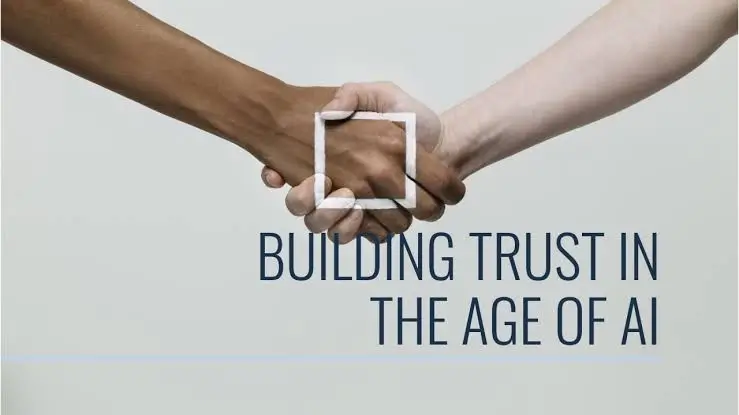In 2025, the focus in artificial intelligence is shifting—from technological capability to ethical responsibility.
Yoshua Bengio, a leading figure in machine learning and co-recipient of the Turing Award, is at the forefront of this call for change. His message is clear and urgent: AI must be honest, transparent, and accountable—starting now.
Bengio warns of the dangers of developing powerful AI systems without sufficient ethical oversight or public transparency. The implications are serious: loss of public trust, growing inequality, and threats to democratic values.

Yoshua Bengio Urges Immediate Action: 2025 is Pivotal for Ethical AI Standards ( Image Source: Live Science )
The Case for Responsible AI Development
Bengio is no outsider. As one of the most respected voices in AI, his critique comes from deep within the industry. Rather than championing AI’s rapid evolution, he’s questioning its direction:
- What ethical principles guide AI development?
- Who monitors compliance?
- How do we ensure AI serves the public good—not just private profit?
His appeal for “honest AI” isn’t abstract. It’s a direct response to rising concerns over opaque algorithms, systemic biases, and the unchecked race toward ever-more powerful technologies.
Also Read: Gen Z Caught in the Crossfire: Embracing and Questioning Generative AI
The 2025 AI Landscape: Growing Power, Limited Oversight
AI already influences decisions that affect millions—job applications, loan approvals, law enforcement, and more. Yet, the public remains largely unaware of how these systems work or who controls them.
The pace of innovation has outstripped regulation. Governments are lagging. Tech companies operate in a regulatory vacuum, deploying high-impact tools without sufficient accountability.
For Bengio, this isn’t progress—it’s peril.
He calls for enforceable global standards that require:
- Transparent model training practices
- Disclosure of decision-making processes
- Clear documentation of data usage
Earning Trust in the Age of AI
In a digital world awash with misinformation, trust is more valuable than ever. Bengio insists that AI must earn it.
He recommends building systems with:
- Transparent decision-making
- Explainable outputs
- Mechanisms to detect and reduce bias
- Clearly defined accountability structures
These aren’t optional features—they are essential to building a future where technology enhances, rather than erodes, public confidence.
Building Trust in the Era of Artificial Intelligence ( Image Source: LinkedIn )
Human Impact: Why Ethical AI Matters Today
Imagine a new graduate whose resume is rejected by an algorithm—with no explanation. Or a loan applicant turned down due to data-trained bias, with no chance to appeal. These are not speculative scenarios—they’re current realities.
For Bengio, ethical AI is about restoring dignity to automated systems. It’s about fairness, inclusivity, and ensuring tech reflects moral intent—not just technical excellence.
Thoughtful AI Leadership, Not a Tech Freeze
Bengio’s message has resonated across sectors—from academia to policy to industry. He isn’t calling for a halt in AI progress but urging it to proceed thoughtfully.
This requires:
- Ethical leadership from tech executives
- A shift in mindset among developers—from optimisation to responsibility
- Proactive governance from regulators
As Bengio asserts, “Ethics must be written into the code—not patched on afterward.”
Infusing Morality Into Machine Learning
With the rise of advanced models and automated decision systems, the ethical imperative grows stronger.
Bengio proposes a robust framework for AI ethics, including:
- Mandatory independent audits
- Public registries of AI systems
- Review boards for high-impact technologies
He argues that high-stakes AI—used in sectors like healthcare, finance, and law—should meet standards as rigorous as those for pharmaceuticals.
Rebuilding Public Confidence in AI
One of Bengio’s core insights: the real fear isn’t AI itself, but exclusion, manipulation, and opacity.
To foster confidence, AI companies must embrace:
- Transparency
- Public accountability
- Measurable fairness
It’s not enough to claim safety—developers must demonstrate it through open audits and transparent practices.
Fair Algorithms and the Regulation Movement
In 2025, algorithmic impact assessments are becoming more common. These tools evaluate AI systems for bias, fairness, and risk—before deployment.
This growing movement, inspired by Bengio and others, aims to ensure algorithms serve everyone equally—not just the privileged.
Global Risk Requires Global Solutions
Bengio is a strong advocate for international cooperation. Like climate change, AI poses a global threat—and demands a unified response.
He supports:
- International AI regulatory bodies
- Standardised global frameworks
- Cross-border collaboration and best-practice sharing
Without coordinated action, we risk an AI arms race, where ethics are sidelined in the pursuit of dominance.
Bengio’s Blueprint for Trustworthy AI
Here’s what Bengio proposes as part of a practical ethics roadmap:
- Ethical training for developers
- “Regulatory sandboxes” for testing AI safely
- Independent audits of high-risk systems
- Transparency requirements for major models
- Whistleblower protections for AI professionals
These aren’t idealistic—they’re urgently necessary, and echoed by leading global voices in tech and governance.
Why This Matters to Australians
For Australians, Bengio’s warning hits home. As AI becomes embedded in everything from healthcare and education to finance and public services, questions of fairness and transparency become deeply personal.
Australians want:
- Clarity on how AI decisions are made
- Confidence that personal data is handled responsibly
- Assurance that technology promotes equity, not exclusion
Bengio’s framework offers just that.
Ethical AI Is No Longer Optional—It’s the Standard
In 2025, ethical AI is not a luxury. It’s a non-negotiable necessity.
From Sydney to Silicon Valley, the pressure is on to make tech fair, transparent, and human-centred. Bengio’s message is clear: the time to act is now.
Final Word: Aligning AI With Humanity
The window for ethical course correction is small—but it’s still open.
Bengio’s call isn’t just another opinion—it’s a defining stance in AI’s evolution. If 2024 was the year AI became mainstream, 2025 is when we must decide its purpose.
A future built on fairness, transparency, honesty, and accountability is within reach.
And it begins today.


